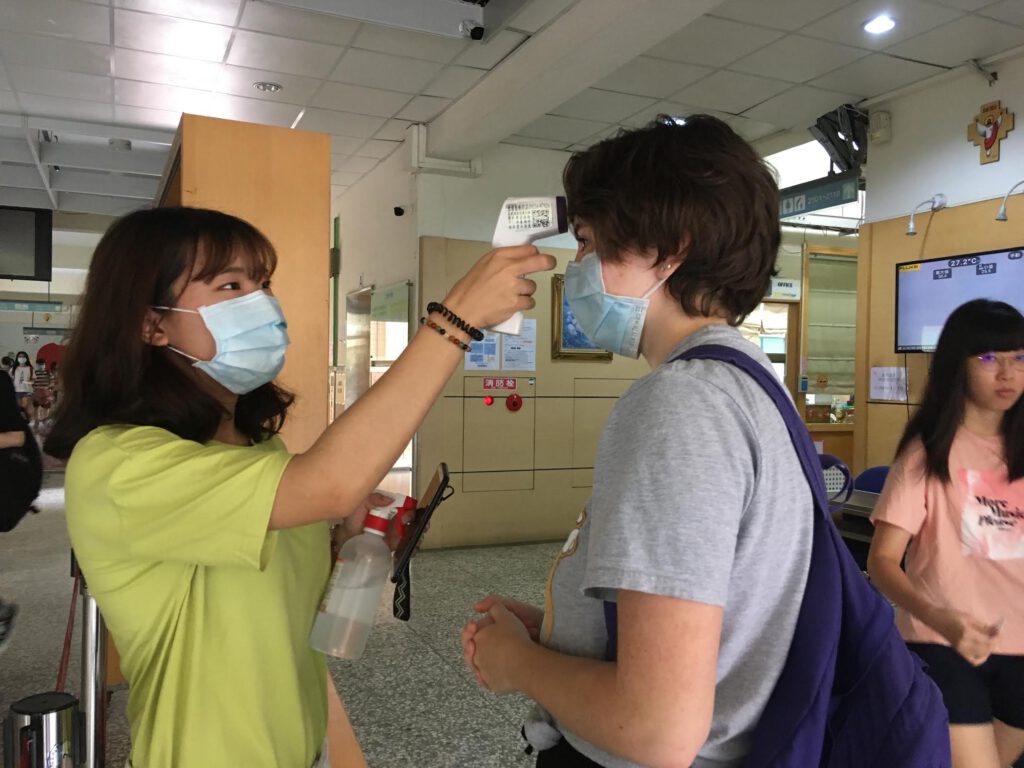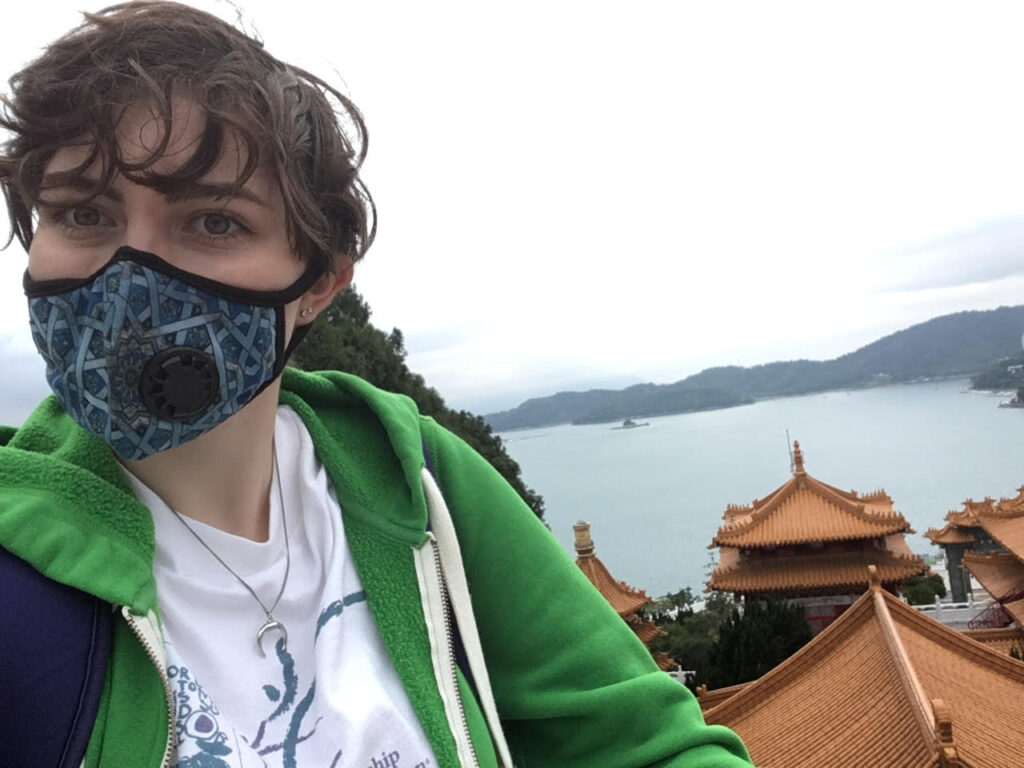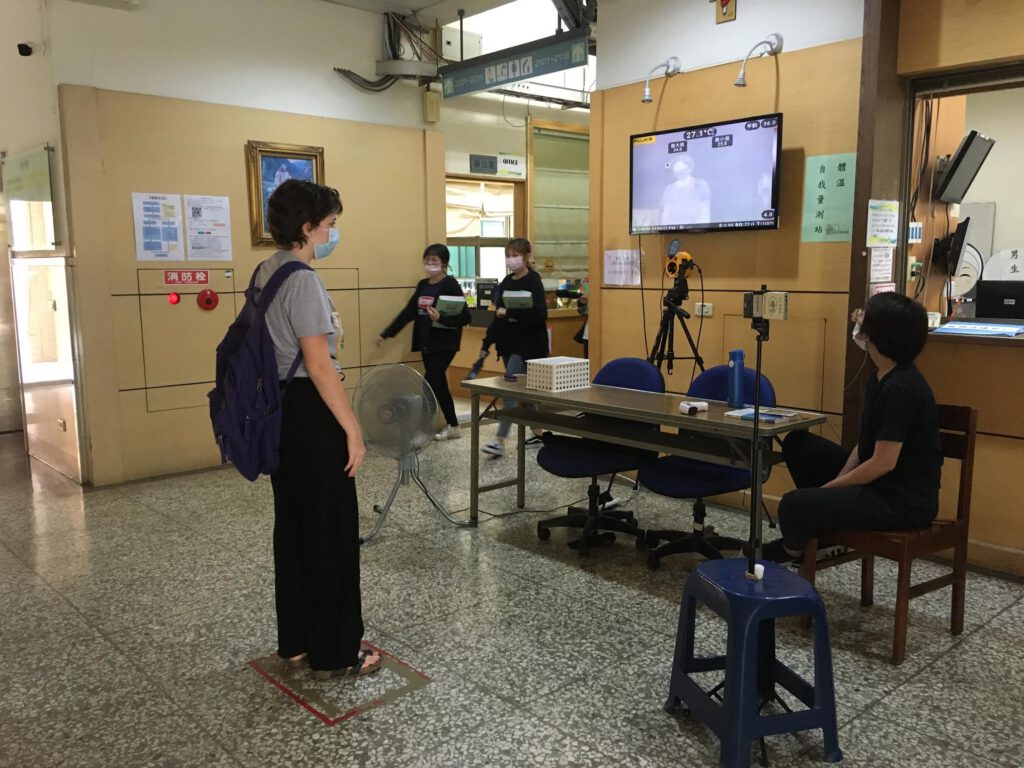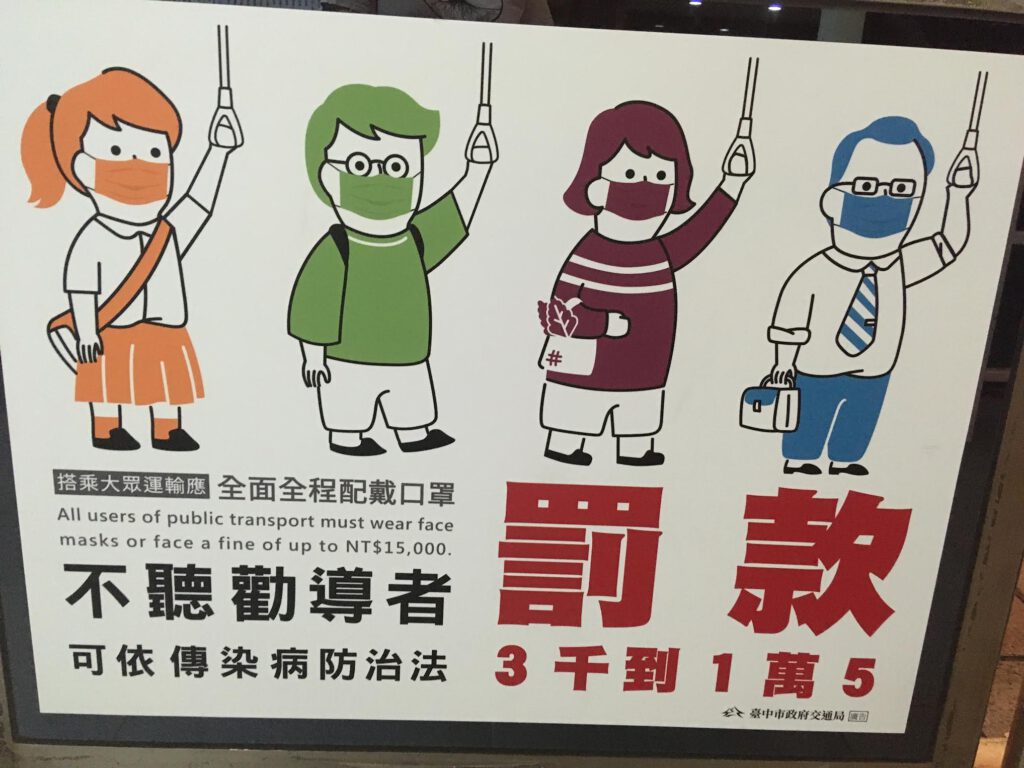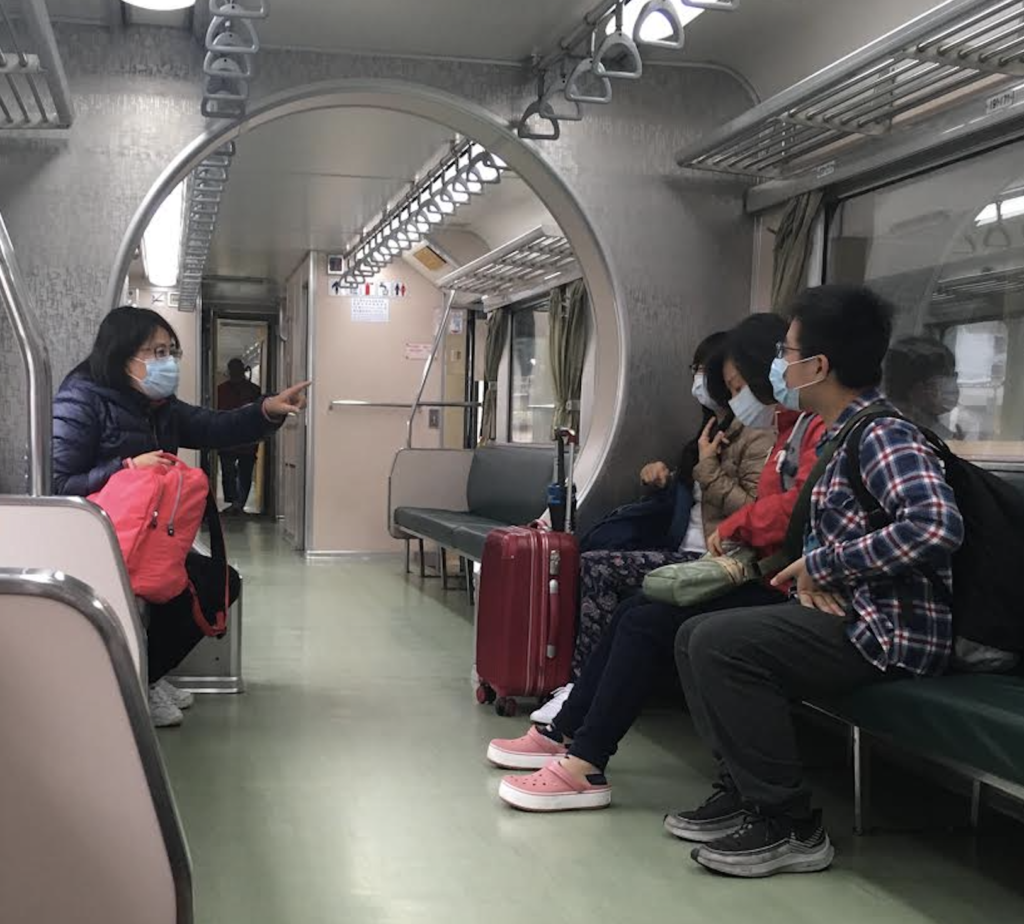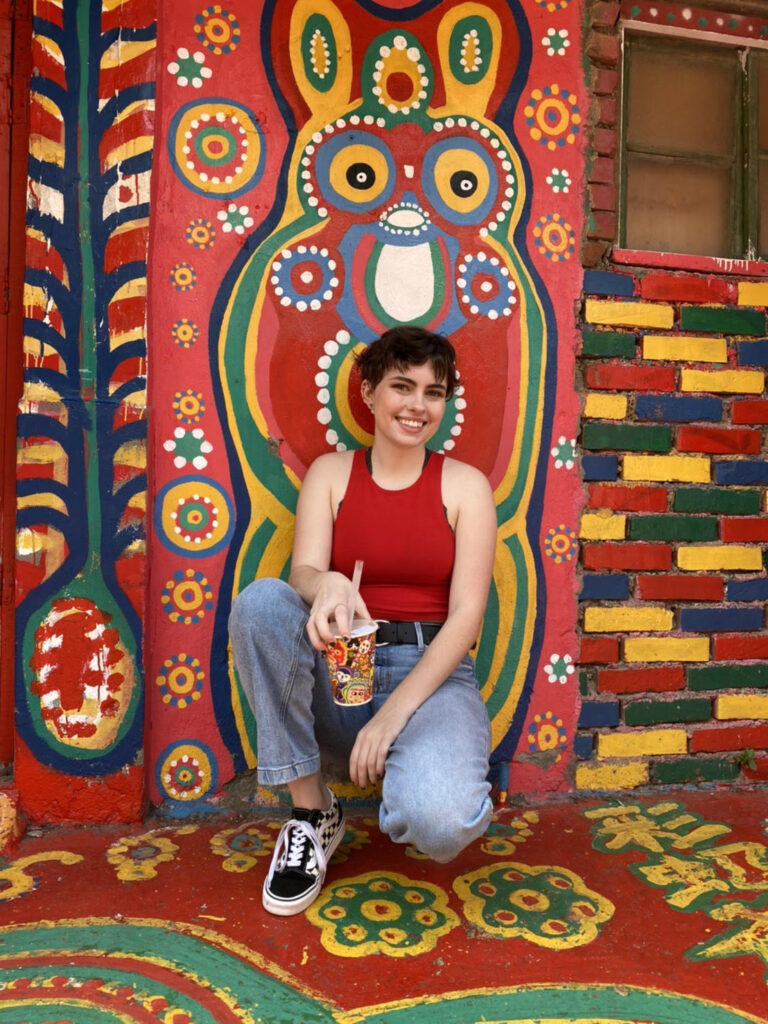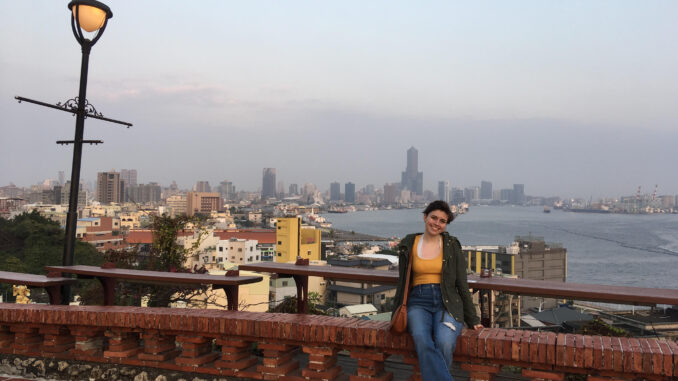
DODGING THE PANDEMIC
By Mackenzie Lenahan
Mackenzie Lenahan is a graduate of Stone Bridge High School and attends Virginia Commonwealth University in Richmond, where she is studying economics. She was eagerly looking forward to spending the spring semester studying abroad in Taiwan — until the coronavirus pandemic came to global attention in the Wuhan region of nearby China.
Lenahan and her parents had a difficult decision to make — cancel the study abroad or forge ahead? She went — and experienced a very different spring than the rest of us.
Here’s her story.
==========
BEEP… “Hao.” BEEP… “Hao.” BEEP… “Hao.”
Every morning at my dorm, I heard the same sounds — students having their temperature taken with a forehead thermometer, followed by the Chinese word “hao” — which means “good.” After a five-minute walk to class, my professor would take all the temperatures of all the students again, including mine. “BEEP… Hao.”
For five months this year, I studied at Providence University in Taichung City, Taiwan. Ironically, when I left Ashburn for this study-abroad opportunity, coronavirus was raging in mainland China. Taiwan is an island country off the coast of China — nearby, but also a world away in some regards.
=====
When I decided where to study abroad, I didn’t throw a dart at a map, but I may as well have. I didn’t know anyone from Taiwan. I had never taken a Mandarin or Asian studies course. And I had no real sense of the country — although I had previously traveled to four other Asian nations. I saw the program description online and thought, “That might be cool.” I had no idea this choice would help me end up avoiding a pandemic.
I first heard of coronavirus in January. My friends from Virginia Commonwealth University were already back in Richmond, but I was still home in Ashburn for winter break. That’s because Taiwan’s universities start about a month later, after Chinese New Year. I started receiving emails from VCU. The university was canceling study-abroad programs in China and was becoming concerned about Taiwan. Then Taiwan delayed the spring semester for all colleges for two weeks. At that time, there were 18 coronavirus cases in Taiwan, and the government wanted to get that number under control before students started gathering again.
The state department still indicated it was OK to travel to Taiwan, but I started to read those early measures to mean that things weren’t so safe. My parents began to question whether traveling to Asia then was such a good idea. What would happen if things got worse there? What if the semester got postponed again? What if travel back to America became a problem, considering the U.S. government had already banned flights from mainland China?
But I didn’t want to miss this opportunity, and it was too late to go back to VCU for the spring anyway. So I went.
=====
In Taiwan I had a fairly typical college experience. This country of 24 million people on an island about the size of Maryland had only 445 coronavirus cases and seven deaths as of mid-June. Taichung, a city of 2.8 million people, had only 40 cases. While my friends in America had to self-isolate and continue their studies online, I attended in-person classes, ate at restaurants and took overnight trips. Life felt normal.
There were a few restrictions — I had to wear a mask pretty much everywhere I went and have my temperature taken before entering any campus building — either with a forehead thermometer or a thermal-imaging camera. A temperature above 37.5 Celsius (equal to 99.5 Fahrenheit) would indicate symptoms of the virus. Some public places like museums or train stations required visitors to fill out cards with their name, address, and other information, in order to know who was in the area in case someone there turned out to be infected.
Stores had markers on the floor to show how far apart customers should stand in line. Bus and train stations blocked off every other seat, so people would not sit too close together while waiting in the station. In my school’s cafeteria, tables were separated, and students were encouraged to eat silently by themselves
There were still night markets in Taiwan, with vendors lined up selling food on crowded streets. Some bars and clubs closed for 14 days early in the pandemic, but then they reopened, hosting “mask parties.” I was able to travel to five other cities in Taiwan, stay in hostels, take public transportation, and freely go wherever I wanted. I lived in my school’s dorms, with full access to the library, cafeteria and student organizations.
The first time I wore a mask in public, in the Taipei airport, I felt incredibly self-conscious. Even though everyone around me was also wearing a mask, it felt so strange and unnatural. I kept taking my mask off to talk to people, not realizing they could hear through the thin fabric. Now seeing people wearing masks is so normal that when I see someone without a mask, I almost do a double-take. A crowd of people wearing masks is just as unsurprising as a crowd of people wearing t-shirts.
Taiwan has a cooperative culture for crises like this. I never heard anyone complain about safety procedures whatsoever, and I never saw anyone try to break them. If you took your mask off on the bus for half a second to scratch your nose, everyone around would give you death glares. Hearing about negative reactions to safety measures in the U.S. shocked me, because I’d become used to such rules being taken in stride in Taiwan.
=====
Many Americans don’t know much about Taiwan, but I wish they did. Even in a big city, the people are kind and laid-back. Anyone on the street would be willing to stop and help you if you needed it, and they won’t get mad if you can’t speak Mandarin. You can buy a delicious meal anywhere for 80 New Taiwan dollars, about $2.70 in U.S. dollars. Some local favorites are stinky tofu, pan-fried buns, Chinese omelets, and bubble tea.
If that doesn’t sound good, you can always go to a 7-Eleven —Taiwan’s one-stop shop for everything. You can buy hot meals, pay fines, and send and receive mail — and every receipt comes with a free lottery ticket. Taiwan also has some of the most beautiful nature areas I’ve ever seen, so I did a lot of hiking, swimming and touring national parks.
While enjoying all that, I did experience a few disruptions throughout the semester. A month into the program — about the time that some European countries experienced serious coronavirus outbreaks — VCU recalled all students studying abroad, regardless of location. I worried that suddenly my semester would be cut short and I would have traveled all this way for nothing. If I went back, I wouldn’t get any school credit and would be stuck self-isolating with my parents (ugh) in Ashburn Farm. My parents contacted VCU, emphasizing that Taiwan had a lower infection rate than the United States and that it was the safest place for me. They worked out a deal — I signed an “Assumption of Risk” form, and VCU let me stay. Even after this, I received a few more emails from VCU, urging me to return home. But I stayed.
=====
I’m proud of myself for forging ahead and not giving up. This taught me to be confident in my decision-making and to follow what I want to do even if it’s scary. I took a leap of faith going to Taiwan, and I feel a big sense of achievement that it paid off.
It’s summer now and I’m home in Ashburn and soon I will go to VCU for the fall semester. The university plans to open its campus back to students in mid-August, with numerous social distancing measures and other precautions in place. I’ll be ready because I already had that experience this spring on the other side of the world.
BEEP… “Good.”

